Description
Take your flight simulation experience to new heights with our custom-designed Arduino Nano! Specifically engineered to enhance flight simulator panels, this shield provides dual-channel backlight control and robust RS485 communication, all while maintaining convenient access to the pins.
The DCS-BIOS Nano Slave is the foundation of a panel in your home cockpit. It connects to your PC via the hub and master. It delivers both data and power to your panel via a single cable. Say goodbye to your USB and power cable mess! This board completely replaces the need for an Arduino Nano, separate RS485 chips and a messy power setup. The Nano Slave is based on the ATmega328p and can do anything a regular Arduino Nano does – and more. Basically it’s an Arduino Nano on steroids.
Features
- GPIO – 11 Digital I/O pins whereof 6 are PWM capable. 2 digital pins are shared with backlight and aux light control. 8 Analog inputs. 6 of the analog pins can also be used as digital pins. Maximum 40mA per digital pin.
- Memory – 32KB code, 2KB SRAM, 1KB EEPROM.
- Integrated RS-485 – The Nano Slave has an RS485 transciever and selectable termination resistor already on board.
- Integrated Power – Provides both 12V & 5V for your backlight, servos, steppers etc. Up to 1A total.
- Integrated Backlight Driver – Allows you to keep your simpit backlight in sync with DCS World for a more immersive experience.
- Screw Terminals – Convenient screw terminals hold your cables securely in place.
- Compatible – Fully compatible with the Arduino IDE and DCS-BIOS. Programmed via a separate programmer.
Power Delivery
How much current can i draw? Please see table below. Testing has shown that an average panel with LED-backlight draws around 100mA, thus if you use all 3 buses you can connect well over 100 panels. So in practice, if you don’t go absolutely crazy, you don’t really need to worry too much about this.
Please use standard network cables (not the slim-type). At least 26 AWG is recommended, smaller numbers mean more power. Slim-type cables are usually 28 AWG and would limit your Slaves to about 500mA instead of 1A, although even this is usually enough for most panels. If your panels include a lot of servos, steppers or incandescent bulbs, you should calculate or measure your power draw.
| Component | Absolute Limit |
|---|---|
| System as a whole, limited by the Master Controller | 15A, 5A per Bus (180W) |
| Each Slave Controller, including backlight and auxiliary light drive. | 1A Per Slave (12W) |
| ⚠️ Warning! Do not hotplug any cables other than USB. Do not connect to home network, DCSBIOSKit uses RS485 and is not ethernet-compatible. Permanent damage will occur, such damage is not covered by warranty! Only connect DCSBIOSKit-compatible products together. |
| ℹ️ DIY Product! While much effort has been put into ease of use, this is still a DIY product and requires some basic knowledge of electronics and Arduino-programming. If you know how to connect a switch to DCS-BIOS using an Arduino – you will be able to use this product. If you don’t – I suggest you check out the instructions on this site or watch some DCS-BIOS tutorials like this one. |
Physical appearance may vary due to availability of components and other factors, functionality remains the same.
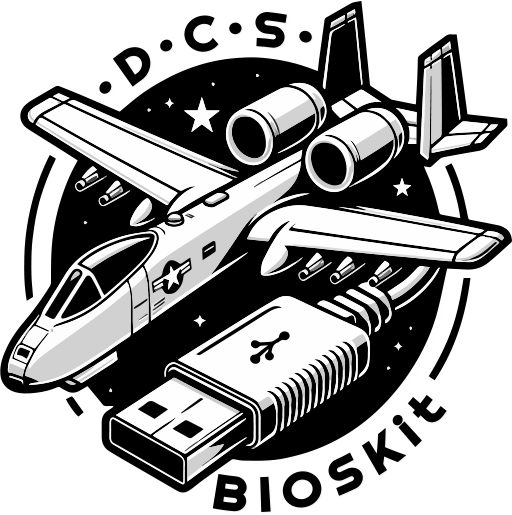
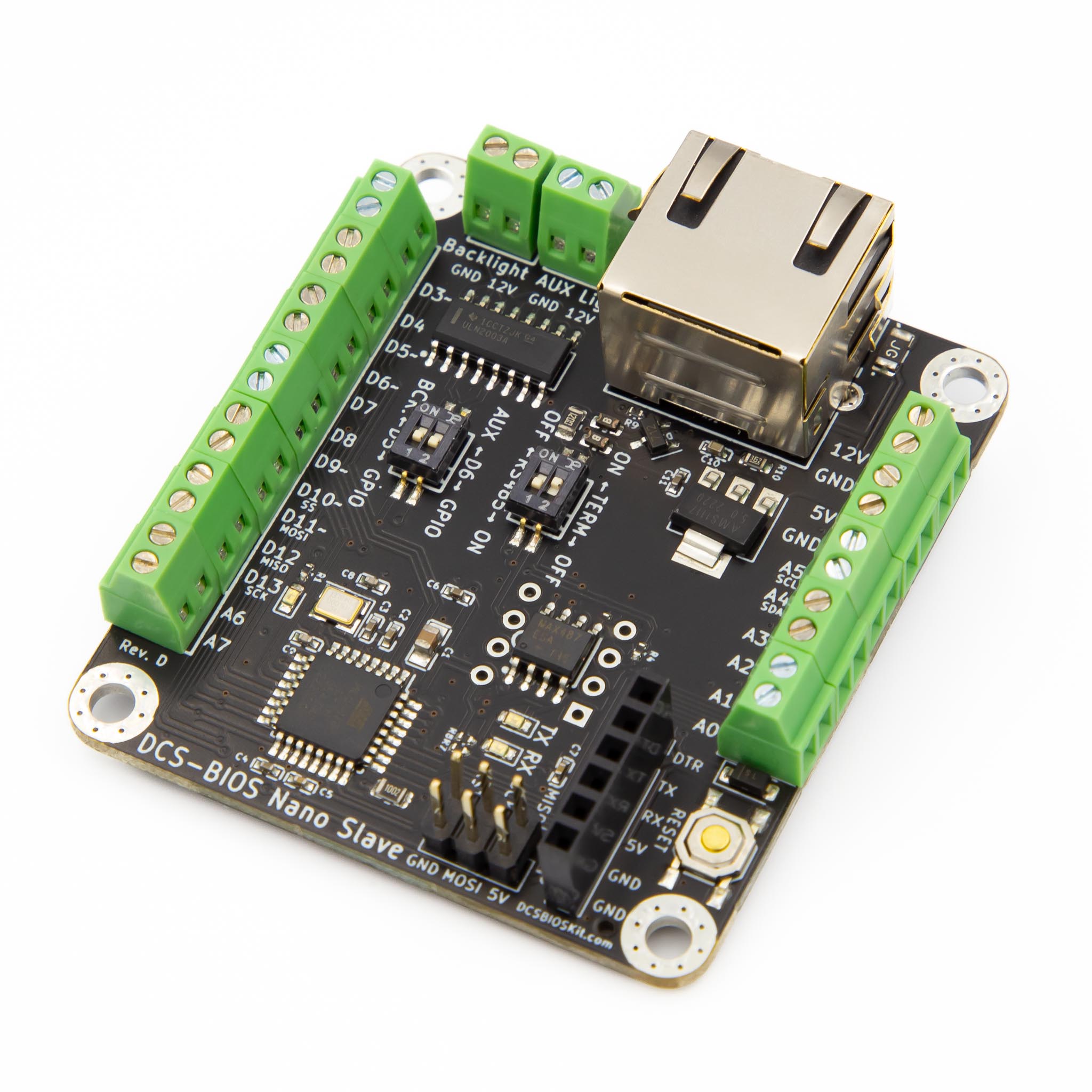
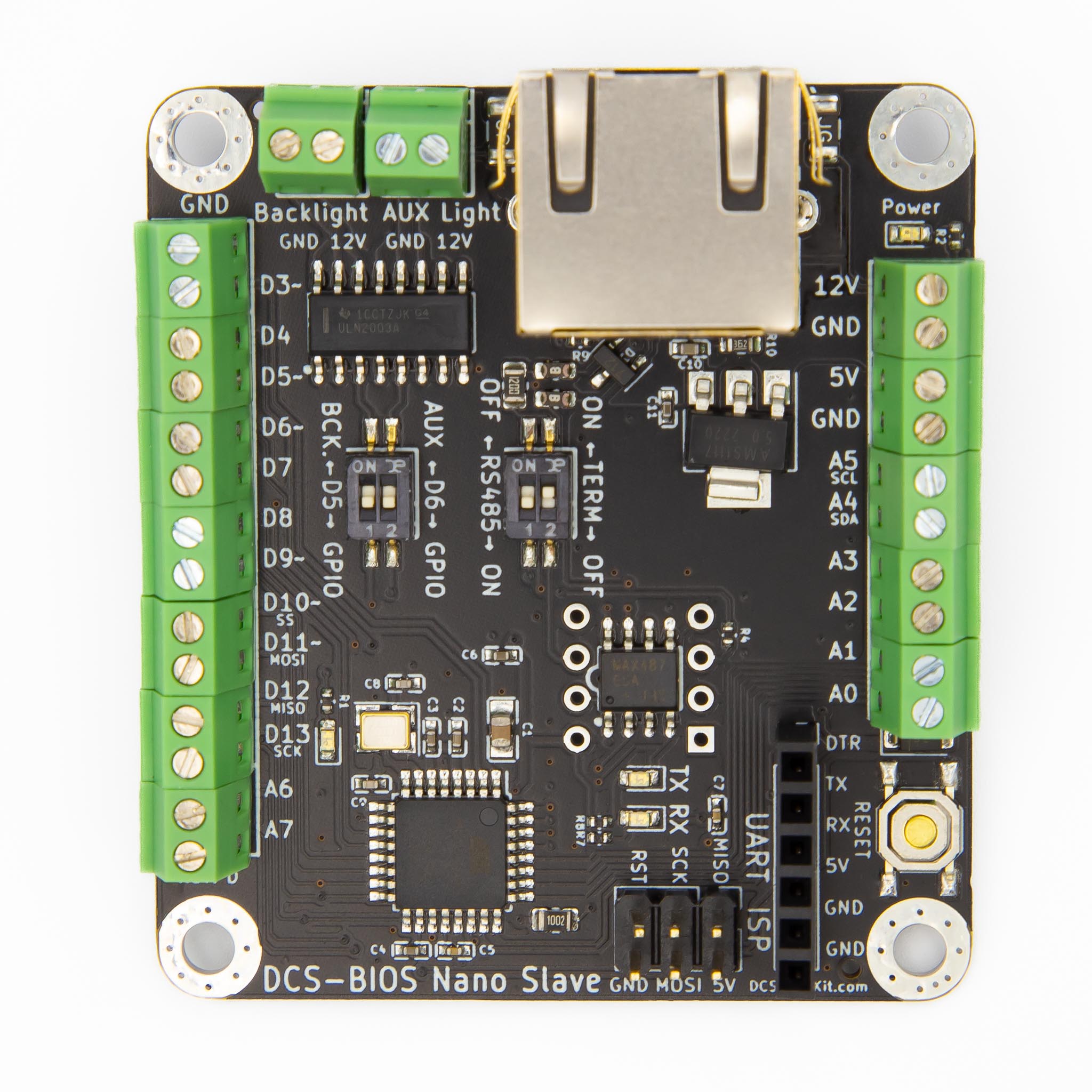
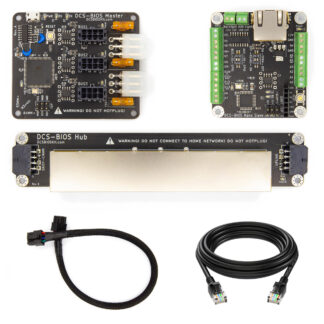
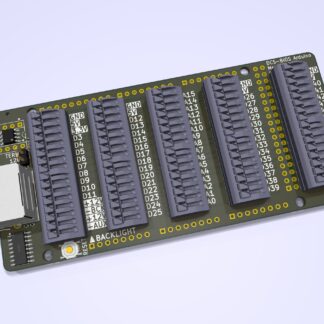
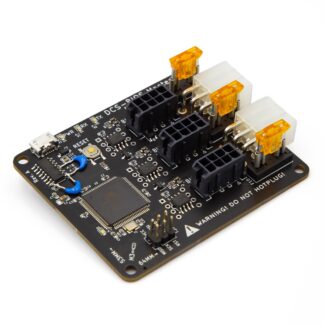
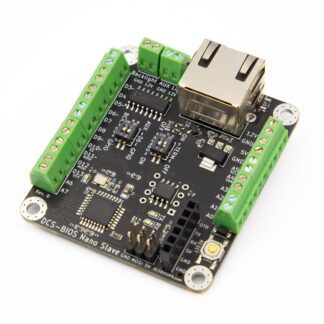
Leave a Reply